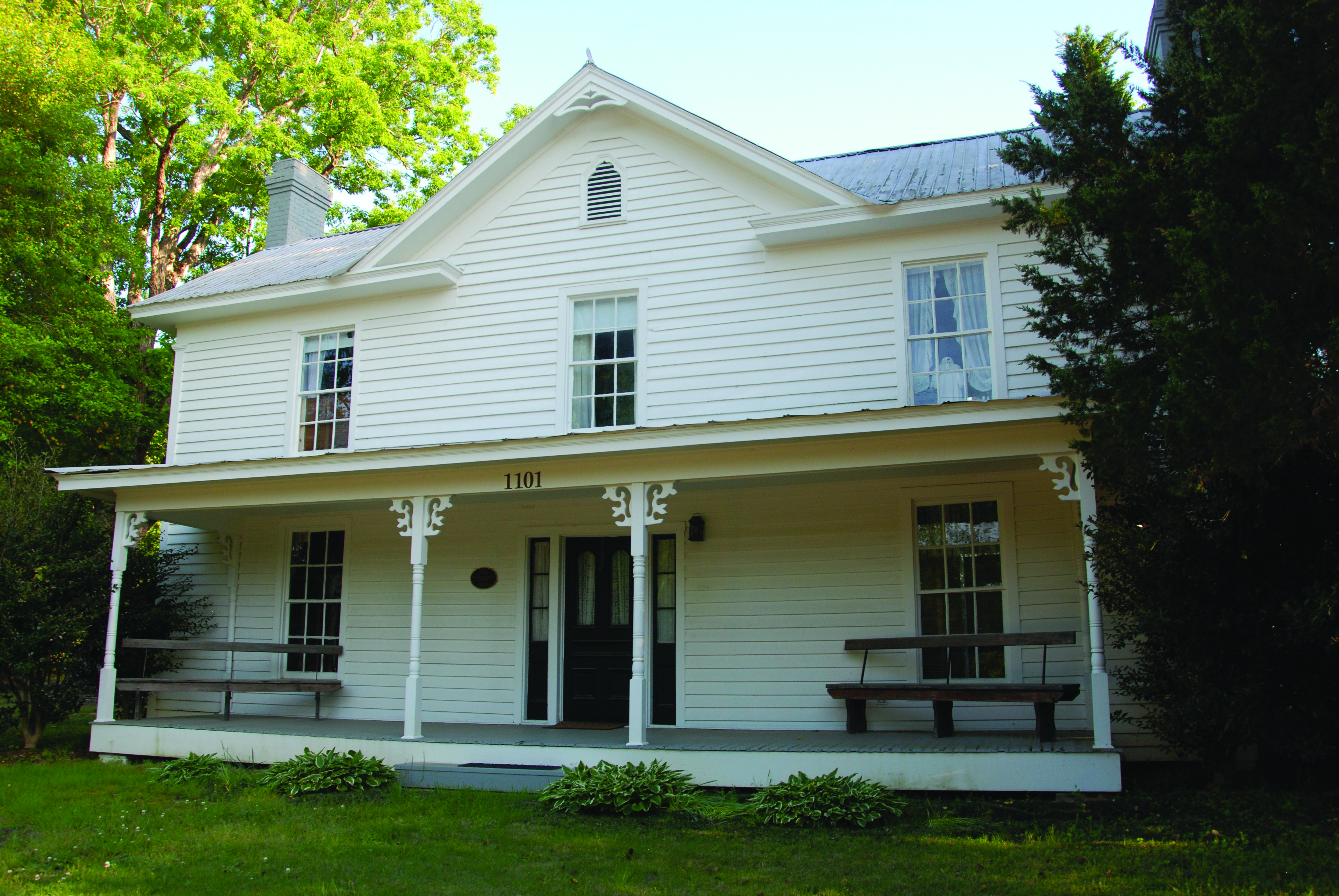Long before Apex became today’s vibrant community of 63,000 residents, industrious members of the Tuscarora tribe inhabited the area. Their crops yielded beans, squash and corn, and they traded rum and deerskin with neighboring Native American groups. Centuries later, settlers developed a small village called “Log Pond” along the Chatham Railroad and constructed a train depot at the rail line’s highest point where steam locomotives, traveling between Virginia and Florida, could refill their engines. This is how the town of Apex officially got its name 150 years ago, later earning the suitable motto “The Peak of Good Living.”
Apex has not only changed significantly since then, but also as recently as the 1960s. There are no longer tobacco fields off Salem Church Road; a country dairy bottling fresh milk near Hunter Street; a drugstore where Anna’s Pizzeria now operates; a four-way stop at the intersection of Highways 55 and 64; and five doctors making house calls.
As Apex has swelled to become one of the fastest-growing suburbs in the U.S., it’s rare to find a town native who can recall its days of yesteryear. Yet a dedicated group of volunteers is determined to keep the town’s rich and illustrious history alive. The Apex Historical Society – a nonprofit, membership-supported organization – works to preserve and promote the town’s past through restoration projects, historical presentations, fundraising activities, and other community events.
“It’s easy for me to preach about Apex, the history of Apex, the importance of maintaining where we came from, and to make sure that we keep Apex the way it is,” says Jeff Hastings, society president. “It’s important that the younger generation knows that there’s an organization such as the Apex Historical Society that is open to anyone who wants to help maintain and preserve the history of Apex.”
Co-Secretary Diane Long echoes that sentiment and especially wants newcomers to feel welcome, just as she did after relocating to Apex nearly 60 years ago as a newlywed. She has seen the town burgeon in popularity and population. “Right now, Apex is not anything like it was when I moved here in 1963, when only 2,000 people were living here. The main street (N. Salem Street) is where all the business was. Beaver Creek (Commons) didn’t even exist and there were only a few things on Highway 55,” she says.
Long organizes the popular Apex Historical Society Holiday Home Tour, an annual December fundraiser that invites more than 500 visitors to step inside some of Apex’s most revered homes and discover their unique histories. The tour always includes the society’s gem: the 1870 Maynard-Pearson House on Olive Chapel Road, which the organization’s founding members saved from possible demolition in 1995 and lovingly restored to its original grandeur. It now serves as the society’s headquarters and showcases artifacts related to the town’s rural past.
The Apex Historical Society proudly managed the placement of the retired railroad caboose adjacent to the 1914 Apex Union Depot on North Salem Street and continues its upkeep for the community’s enjoyment. The organization also prepared documentation for the Apex Union Depot and the 1912 Apex Town Hall/Market, which now houses the Halle Cultural Arts Center, to be formally recognized in the National Register of Historic Places. These structures, as well as the Maynard-Pearson House, have also been designated Wake County Historic Landmarks.
Future Plans
Hastings says the group is working on several projects for the community’s benefit. “We plan to update the garden in front of the Maynard-Pearson House and try to increase parking so we can have more events and open it to the public as often as we possibly can. We’d like to open the house for small gatherings and on Friday nights when community bands could play music, so we can let people know about the history of Apex,” he says.
Another goal is to restore the 1872 Tunstall House, located on a secluded hill next to Apex Town Hall. The two-story residence, officially known as the Thompson-Utley-Fletcher-Tunstall House, was home to four of Apex’s most influential citizens and added to the National Register of Historic Places in 2003. Although the home has fallen victim to the ravages of time and is boarded up, Hastings says, “There are some grassroots efforts to try and restore the house to make it into something usable by the Town of Apex.”
Join the Apex Historical Society
Both Hastings and Long encourage residents to join or volunteer their time with the Apex Historical Society. Board meetings are held monthly at the Maynard-Pearson House and are open to the public. The society also welcomes anyone who would like to learn more about Apex’s colorful history to attend its annual Preservation and Pie event in February at the Halle Cultural Arts Center. The group also hosts an annual plant sale fundraiser in the spring, a summer ice cream social, and a fall membership picnic. Due to the COVID-19 pandemic, all Apex Historical Society events, including board meetings, have been postponed. Visit apexhistoricalsociety.com for updates. Learn more about the society on Facebook (search Apex Historical Society).








